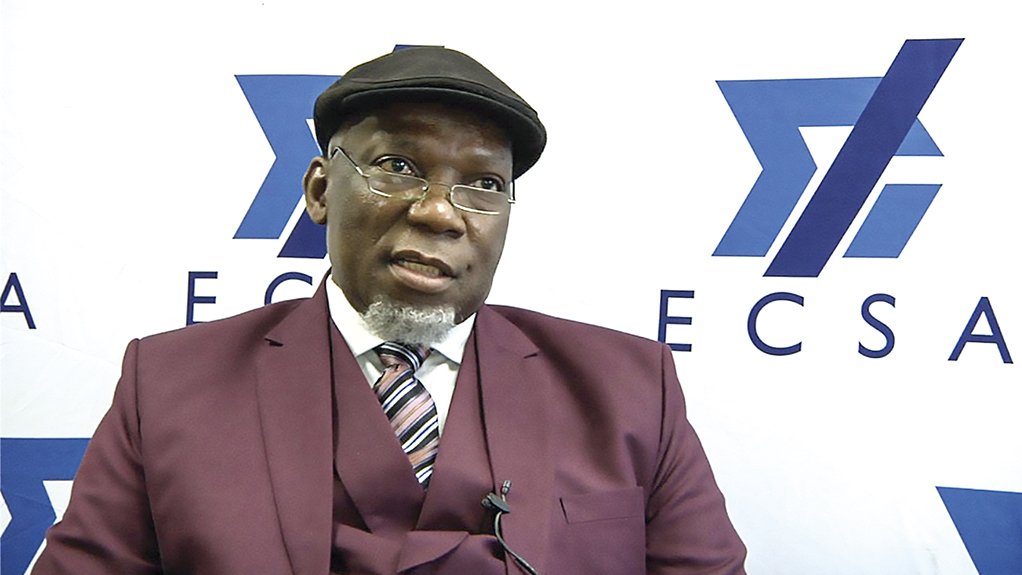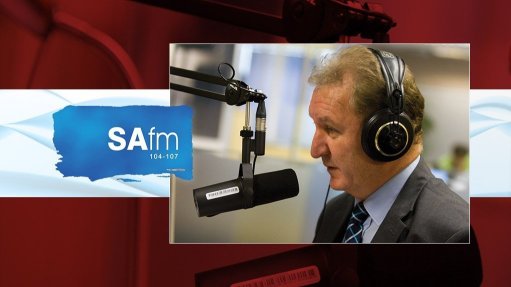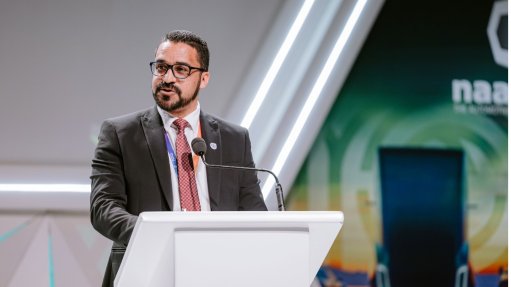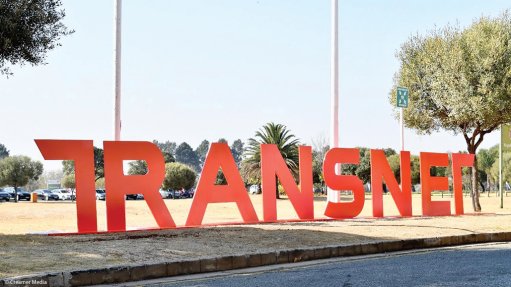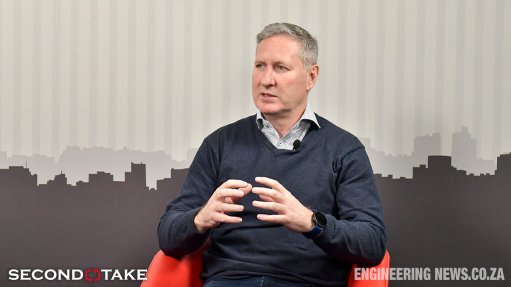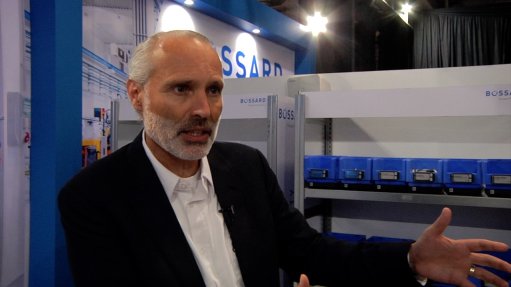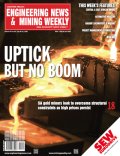ECSA mandate strives for engineering excellence
The Engineering Council of South Africa (ECSA) is a statutory body that was established according to the Engineering Professions Act 46 of 2000 with the primary role of regulating the engineering profession by standardising the ways of measuring competencies for professional registration as
well as for tertiary qualifications.
“ECSA plays a crucial role in the accreditation of engineering programmes at tertiary institutions, ensuring that the qualifications
are properly assessed to ascertain whether these institutions meet the criteria for registration purposes,” says ECSA President Mashao Lawrence Lebea.
The council also regulates the profession by managing the conduct of Registered Persons through the ECSA Code of Conduct and the ECSA Code of Practice.
He says the Code of Practice model enables the council to maintain the training and development of South Africa’s engineering practitioners, with the council “making great strides” in becoming an effective regulator.
“We have put in place structures and frameworks to guide the operations of the engineering practice and we are the only African country with full membership of the International Engineering Alliance (IEA).”
Membership to the IEA confirms that South Africa’s engineering standards compare well with the world’s best. The IEA governs the recognition of the engineering education qualification and professional competence.
He believes that, for ECSA to become more effective, it is necessary to review the legislation, as the current format is too prescriptive. It is also important, he says, that company regulations be developed, since these do not currently exist.
Regarding the significance of the Identification of Engineering Work (IDoEW) in ensuring that ECSA becomes an effective regulator, Lebea notes that the Engineering Professions Act calls for the identification of the type of engineering work that must be performed by engineering practioners.
Therefore, the IDoEW plays a major role in expanding ECSA’s legislative mandate of regulating the profession.
“We believe that, through the IDoEW, we will be able to protect the public, the profession and any registered persons. Thus, the implementation of the IDoEW will afford not only ECSA the opportunity to regulate the engineering profession effectively but also the registered persons to benefit from a well and effectively regulated environment,” he explains.
ECSA aims to ensure that registration is compulsory, thereby making it illegal for any unregistered people to perform any identified engineering work independently.
Key Programmes
ECSA is implementing its new five-year strategy to ensure that it not only becomes an effective regulator, assuring engineering excellence, but also that engineering standards remain competitive and at the same level as international standards.
“We will also make sure that our regulatory interventions are geared towards quality, effectiveness and efficiency,” says Lebea.
Five key programmes are planned to realise this strategic vision, with the first programme focusing on education and training standards. This programme ensures that educational programmes meet the set criteria for accreditation of tertiary institutions.
The second programme focuses on the registration of candidates and competent engineering professionals for independent practice, ensuring that registered professionals can work independently.
The third programme focuses on assuring ongoing professional competence of the registered professionals through ongoing and continuing professional development programmes and initiatives.
The fourth programme focuses on professional practice, based on the ECSA Code of Conduct and the ECSA Code of Practice.
The fifth programme focuses on a competent, efficient and effective support structure, which refers to ECSA’s administration.
He notes that his role as ECSA president requires the assurance of an effective council that will implement the council’s direction and strategy.
“As president, I am required to render an oversight role to council and administration, while acting as an advisor and a counsellor for senior management.”
The council should remain independent at all times while still maintaining interdependent relationships with stakeholders, he adds.
Transformation
Lebea explains that transformation is a process, but he believes that it will ensure maximum efficiency in the delivery of ECSA’s mandate.
The current ECSA council has shown improvement, specifically in the number of women, as 49% of council members are women, including ECSA Vice President Refilwe Buthelezi.
“It is a pity that this industry is still profiled as a white, male-dominated industry. However, I believe that ECSA is doing well in its efforts to transform the industry. In recent years, the number of registrations has increased, which I believe is linked to professional, gender and race transformation,” he states.
“The new ECSA council is ready to ensure that the entity becomes an effective regulator through the key programmes that we aim to implement, even though we have not yet met face-to-face, owing to the Covid-19 pandemic.”
This has, however, not dampened the spirit of members, who have proven their level of commitment to delivering on the council’s mandate.
“We have not used the pandemic as an excuse not to fulfil our mandate. Instead, we have embraced the digital transformation opportunity that the pandemic has afforded us. Our administration has embraced this opportunity and has completed the process of having the first online accreditation policy adopted by council.”
“We used to do accreditations physically, but this new policy guides how accreditation can be done online in a pandemic environment,” Lebea says.
The implementation of the five-year strategy entailing the key programmes, transformation of the industry and the IDoEW will culminate in ECSA being an effective regulator assuring engineering excellence.
Comments
Announcements
What's On
Subscribe to improve your user experience...
Option 1 (equivalent of R125 a month):
Receive a weekly copy of Creamer Media's Engineering News & Mining Weekly magazine
(print copy for those in South Africa and e-magazine for those outside of South Africa)
Receive daily email newsletters
Access to full search results
Access archive of magazine back copies
Access to Projects in Progress
Access to ONE Research Report of your choice in PDF format
Option 2 (equivalent of R375 a month):
All benefits from Option 1
PLUS
Access to Creamer Media's Research Channel Africa for ALL Research Reports, in PDF format, on various industrial and mining sectors
including Electricity; Water; Energy Transition; Hydrogen; Roads, Rail and Ports; Coal; Gold; Platinum; Battery Metals; etc.
Already a subscriber?
Forgotten your password?
Receive weekly copy of Creamer Media's Engineering News & Mining Weekly magazine (print copy for those in South Africa and e-magazine for those outside of South Africa)
➕
Recieve daily email newsletters
➕
Access to full search results
➕
Access archive of magazine back copies
➕
Access to Projects in Progress
➕
Access to ONE Research Report of your choice in PDF format
RESEARCH CHANNEL AFRICA
R4500 (equivalent of R375 a month)
SUBSCRIBEAll benefits from Option 1
➕
Access to Creamer Media's Research Channel Africa for ALL Research Reports on various industrial and mining sectors, in PDF format, including on:
Electricity
➕
Water
➕
Energy Transition
➕
Hydrogen
➕
Roads, Rail and Ports
➕
Coal
➕
Gold
➕
Platinum
➕
Battery Metals
➕
etc.
Receive all benefits from Option 1 or Option 2 delivered to numerous people at your company
➕
Multiple User names and Passwords for simultaneous log-ins
➕
Intranet integration access to all in your organisation



